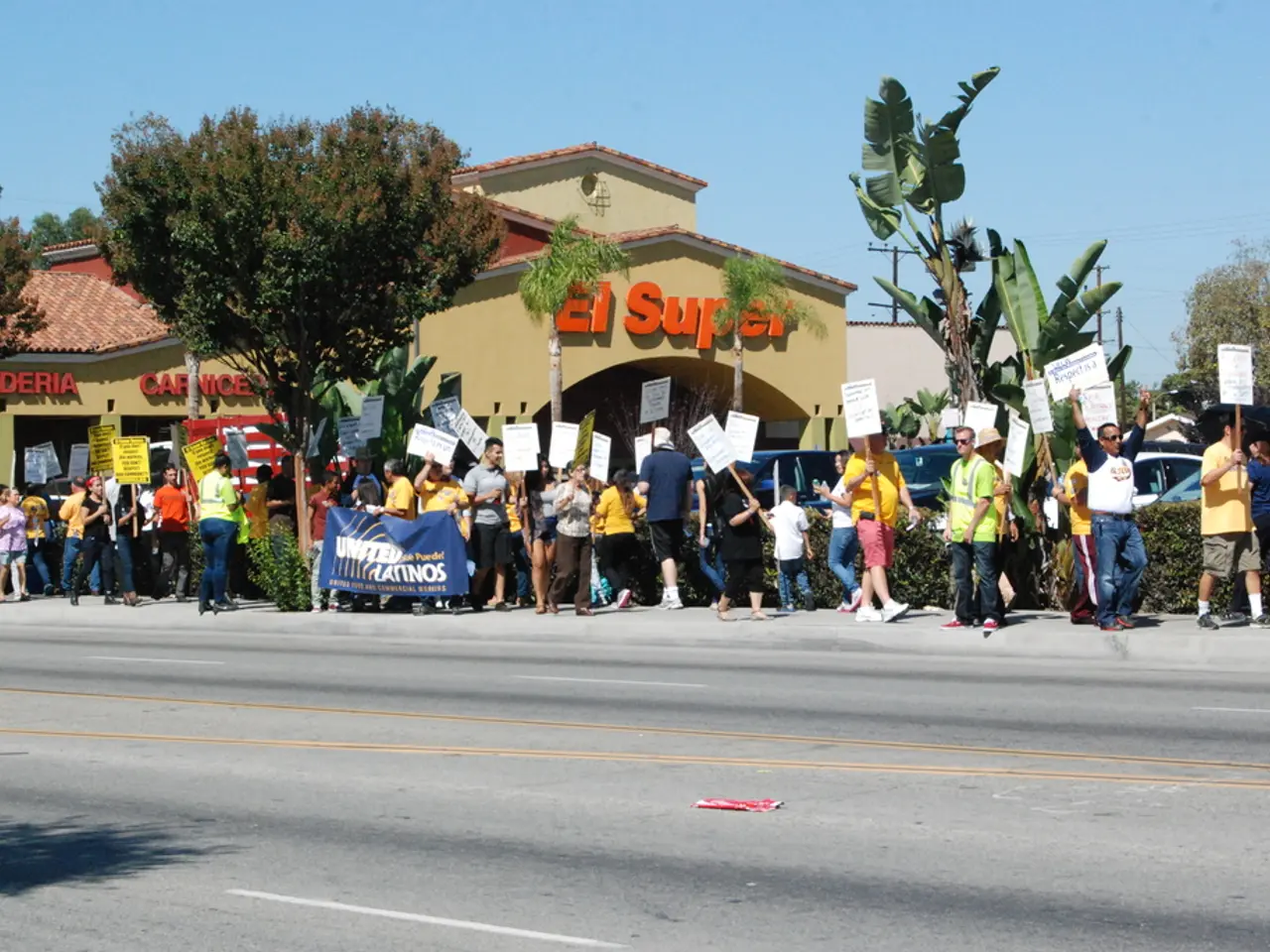2020 US Election Exposition by Abraham: Navigating Through Turmoil
In the aftermath of the 2020 US election, a polarized environment made it increasingly difficult to bridge the gap and find areas of agreement, leading to a stagnation in policy-making and governance. This stalemate has highlighted several challenges faced by election workers, whose pivotal role in ensuring the smooth functioning of the electoral process has come under immense scrutiny.
Academic research has identified various obstacles facing election workers, including logistical challenges and dealing with misinformation. To combat misinformation, individuals must verify sources, fact-check information before sharing, and critically analyze news. Efforts to debunk misinformation are gaining momentum, offering hope for a more truthful narrative surrounding elections.
One of the key issues plaguing the election process is the retirement of experienced officials and the subsequent staffing shortages. These challenges are exacerbated by threats to personal safety, leading to a brain drain within the election workforce. To address this issue, efforts emphasize the need for more resources to recruit, train, and retain skilled staff and poll workers to maintain efficient election administration.
Robust cyber defenses are critical to counter evolving threats, including those aided by artificial intelligence. Physical security is also a priority due to increased threats, harassment, and attacks against election workers and infrastructure. Some states have passed laws granting legal protections to election workers, while federal agencies like the DOJ and FBI provide investigations, prosecutions, physical security assessments, and threat monitoring.
Cooperation and resilience building are crucial components in ensuring the resilience of election systems against disruptions and threats. Election offices report increased collaboration with state and local authorities to boost resilience against incidents such as bomb threats and drop box attacks.
Better funding from states and localities to supplement federal support, stronger legal and security protections for election officials, investments in modern equipment and staffing, and coordinated threat response strategies constitute the core recommendations to tackle these challenges. These combined efforts aim to maintain election system resiliency, assure voter access, and protect officials who administer elections.
The UK Electoral Commission’s recent plan, while not US-specific, similarly emphasizes modernizing systems, building resilience, and working with multiple stakeholders to address threats and maintain electoral integrity, reflecting common international approaches to these issues.
Advocating for reforms like ranked-choice voting, increased voter access, and campaign finance transparency is essential to enhance the electoral process. The extreme polarization between Democrats and Republicans during the 2020 election caused a widening gap between the two major political parties, hindering any potential for collaboration. Clinging to false beliefs in politics risks being misled, making uninformed decisions, and contributing to division.
Social media and news outlets played a significant role in amplifying polarizing narratives, intensifying the divide among voters. Fact-checking initiatives and educational programs are key components in addressing concerns about election integrity. The impact of misinformation on elections is perceived as detrimental, causing confusion and distorting facts.
Surveys of election workers have provided valuable data on turnover rates within this essential workforce. Data-driven approaches are yielding heartening results in the fight against election misinformation. Optimism is on the rise as concerted efforts continue to combat election lies.
Embracing positive developments like increased civic engagement, discussions on important issues, and a focus on transparency in the political process can help navigate through uncertainty with hope and purpose. The path ahead may be challenging, but with perseverance and unity, the possibilities for positive change are limitless.
Science and education-and-self-development can play crucial roles in combating misinformation during elections by promoting fact-checking initiatives and educational programs (science). As widening political divisions hinder collaboration, politics and general-news must strive for transparency to encourage civic engagement and foster discussions on important issues (politics). Social media, being a significant platform for amplifying polarizing narratives, must emphasize the importance of verifying sources and critically analyzing news to mitigate the impact of misinformation (social-media). Health-and-wellness encompasses mental health, and the stress and strain of working during polarized times could potentially impact the wellbeing of election workers (health-and-wellness). Entertainment can be leveraged to create engaging content about the importance of election integrity and the work of election workers, helping to emphasize the seriousness and importance of their role (entertainment).




